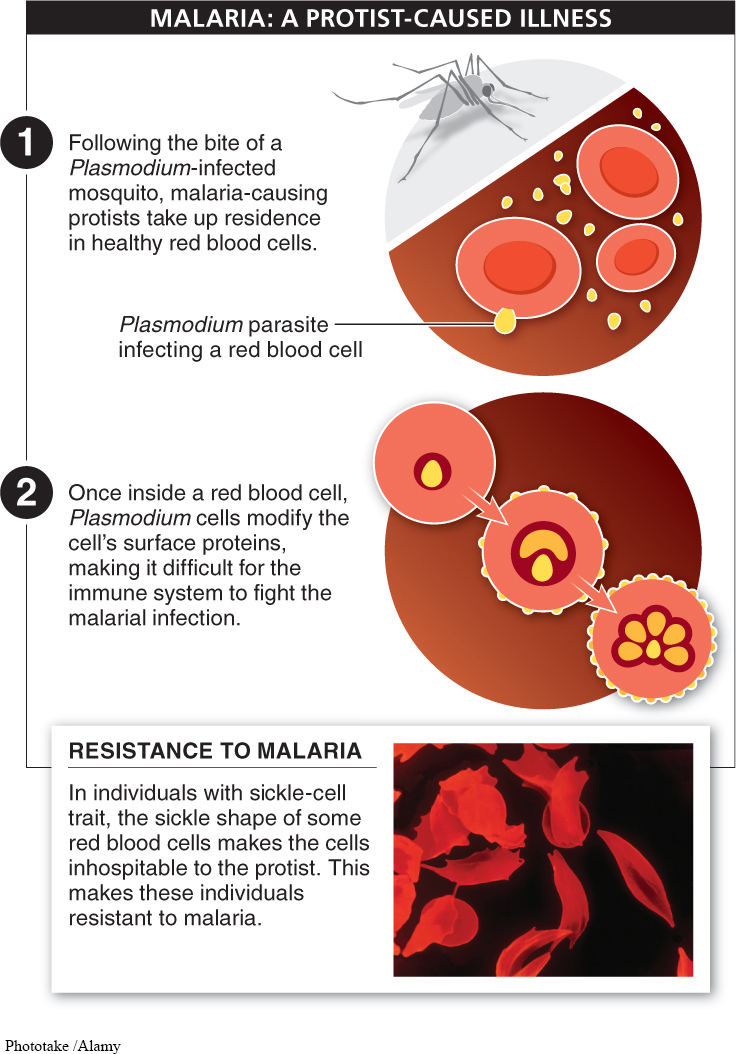A parasite is an organism that lives in or on another organism, called a host, and damages it. A parasitic protist called Plasmodium that is transmitted by a mosquito is responsible for a worldwide epidemic disease—
Neither the incidence of malaria nor the rate of mortality has changed very much since Plasmodium was identified as the cause of malaria nearly a century ago. The reason for the lack of progress in combating malaria is the nature of Plasmodium—

The human immune system has a difficult time fighting a malarial infection because, to survive from one generation to the next, Plasmodium parasites go through a series of distinct developmental stages. And as the Plasmodium cells change from one stage to another, the parasite produces different cell surface proteins. Thus Plasmodium stays ahead of the human immune system by constantly changing the way it appears.
Although the immune system doesn’t usually have much success fighting malarial infection, some individuals produce red blood cells that are inhospitable to Plasmodium, conferring a resistance to the malaria-
TAKE-HOME MESSAGE 13.15
Some protists cause debilitating diseases. Plasmodium, the protist responsible for malaria, is one of these. Plasmodium has characteristics that protect it from the human immune system, but some humans do have a defense against malaria: people with sickle-
About 1 million people die each year of malaria. Unfortunately, there has been very little progress in combating this disease. Why is this the case?
The parasitic protist Plasmodium, which causes malaria, goes through a series of distinct developmental stages. As the Plasmodium cells change from one stage to another, the parasite produces different cell surface proteins. Therefore, it is difficult for the human immune system to identify and fight the parasites.
557